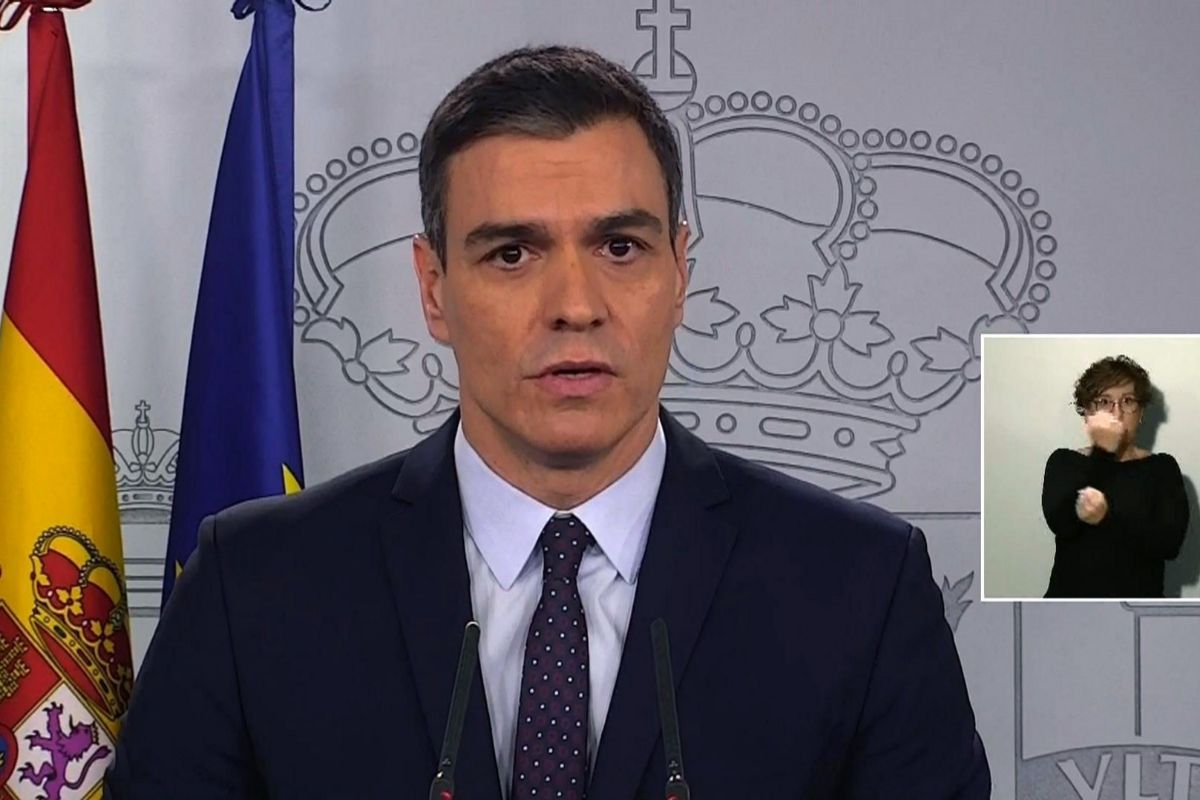We had been demanding from the Prime Minister a much more agile and forceful reaction than he was showing to mitigate as far as possible the impact of the pandemic on the Spanish economy. Sánchez did not do it last week, gripped by the division in his cabinet, but yesterday, in use of the power provided by the state of alarm and abandoning procrastination and sectarianism to listen to opposition parties and social agents, the president finally reacted . Despite Chinese or Italian evidence, Spain has taken longer than other countries to adopt categorical measures in both the health and economic fields, and this delay will have a dramatic cost. But it is better late than never, and when you rectify yourself to embrace responsibility in the wake of France or Germany, you should applaud it.
The shock plan announced yesterday after the Council of Ministers meeting puts unprecedented figures on our democracy on the table: 200,000 million euros, of which 117,000 will come from public funds -that is, money from all Spaniards- and the rest from private sources. It is about putting the State itself as guarantor of the Spanish economy , which will confidently face a threat whose destructive potential can be compared to the crisis triggered in 2008. It is true that the debt will skyrocket, but in the middle of the hemorrhage, the fundamental thing is to apply a tourniquet, because the cost of not doing it now costs what it would be much worse. Measures that combine social protection with incentives for companies, such as the moratorium on the payment of mortgages for people in difficulty or the easing of ERTEs, are moving in the right direction. As well as exemptions in the Social Security quota for employers, the guarantee of basic supplies such as water or electricity to the most vulnerable families and budgetary injections for autonomies and municipalities, as well as for exporting companies. But above all, it is necessary to highlight the solemn presidential commitment to provide "all the liquidity" that is necessary through State guarantees, which will act as guarantor of economic operations and will shield strategic sectors from possible foreign purchase temptations.
The rebound experienced by the Ibex can be interpreted as a vote of confidence
The immediate rebound experienced yesterday by the Ibex 35 should be interpreted as a vote of confidence from the markets to the measures announced by Sánchez, who despite everything did not clear up some unknowns that keep citizens very concerned. Especially to those who are self-employed and for whom the President did not list any specific aid outside of exemptions in contributions, being that SMEs and self-employed constitute the immense mass of our productive fabric.
A tourniquet, however, is not enough to ensure that the patient runs again. It is necessary to generate confidence so that the markets do not end up punishing the credit of the Spanish economy. The shield designed by the Government will become a serious deficit in a few months if the plan does not work or if the crisis continues too long. If Pedro Sánchez and Pablo Iglesias continue together, throughout the rest of the legislature they will have to completely renounce the insolvent economic program that they were preparing and that will now make less sense than ever: hostile to companies, incompatible with job creation and relaxed in public spending without considering adjustments in the structural deficit. The risk premium will continue to rise. The coronavirus is a stark lesson in realism that this Government is already obliged to bear in mind. The price of not doing it we will all pay very expensive.
According to the criteria of The Trust Project
Know more- Pedro Sánchez
- Spain
- Pablo Iglesias
- Social Security
- Coronavirus
- Editorial
EditorialA crisis in search of a leader
EditorialFor national unity against the pandemic
EditorialA united nation, a broken and insolvent Executive

